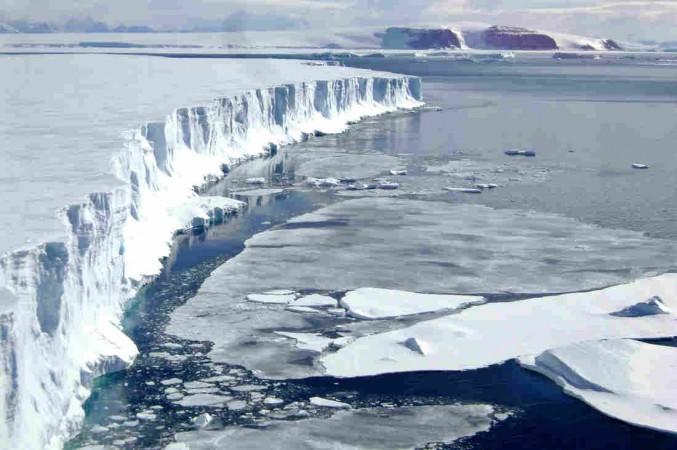
The latest in climate change is here. We have been getting the reports that the Arctic ice sheets are melting due to rapid changes in the climate. Northern Greenland accommodates some of the thickest ice sheets in the entire region and they were expected to retain the sea ice sheets intact all year-round. However, now it appears that even these 70 feet tall ice sheets are melting and that too fast.
According to CNN, some latest satellite images show that for the first time, some of these oldest ice sheets, surrounding vast areas, at the Arctic have been replaced by open water. This weather phenomenon has most definitely surprised and shocked the scientists and the ice monitors worldwide.
According to National Snow and Ice Data Center's senior research scientist Walt Meier, this region was considered "the last bastion," where it was expected that the climate change effects would arrive not later but it's here now already.
Northern Greenland's ice sheets are much thicker than anywhere else in the Arctic region because as the ice floats across this region from Siberia, it gets compressed against the rugged coast of Greenland, explained Meier.
Thomas Lavergne, a scientist from the Norwegian Meteorological Institute, recently retweet a satellite-gif, which shows the blue water penetrating the white ice across the Greenland coastline.
So the open water / low concentration patch North for Greenland is still there (and slowly moving westward). Nice and scary. From https://t.co/jPx1JmNayA https://t.co/hGstLYafcW
— Thomas Lavergne (@lavergnetho) August 13, 2018
This year alone has shown that even the thickest sea ice on the face of Earth is not strong enough to fight climate change. Also, the most surprising part is that when it first occurred in this region this year; it was still winter there; so it was quite cold even in terms of Greenland's weather. However, according to a senior ice adviser at the Greenland Ice Service Keld Qvistgaard, the current melt is far more extensive than what appeared earlier this year during the late winter. Qvistgaard also added that in 26 years of his professional life, he has never seen a breakup this humongous.
This sea ice breakup would have implications on the global climate. The ice sheets are now much thinner and weaker; so it is likely that this would happen again in the future.

















